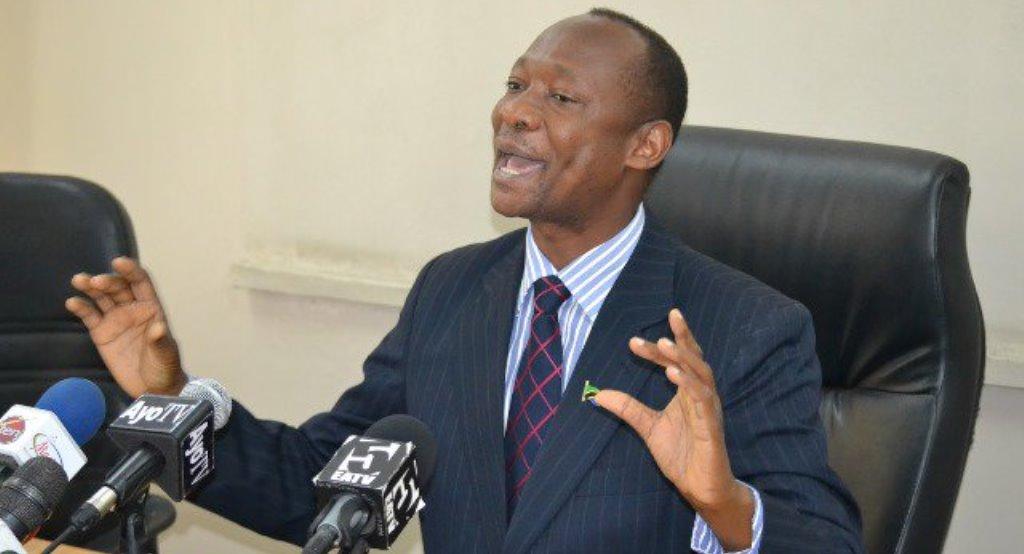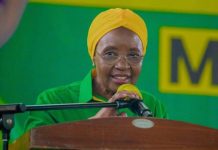Africa-Press – Tanzania. THE pass rate for the Form Four National Examinations held last year has increased by 5.19 per cent compared to 2019, with boys outshining girls after grabbing seven out of ten top slots.
More so, two coastal regions, Dar es Salaam and Coast, have beaten others by fielding six schools in the top ten of best schools for Certificate of Secondary Education Examination (CSEE) in yesterdays’ results.
For two consecutive years, 2018 and 2019, boys were outshone by girls in CSEE performance, as in 2019, girls scooped seven out of the coveted top ten seats.
Announcing the results on Friday, the Executive Secretary of National Examinations Council (Necta) Dr Charles Msonde said for the year 2020, a total of 373,958, being 85.84 per cent of the 434,654 candidates who sat for the CSEE, successfully passed their examinations.
The top ten best students with their schools and regions in brackets are Paul Lusinga (Pandahill, Mbeya) followed by Justina Gerald (Canossa, Dar es Salaam), Timothy Segu (Mzumbe Morogoro), Isaya Rukamya (Feza Boys Dar es Salaam) and Ashrafu Ally from Ilboru in Arusha.
Others are Samson Mwakabage (Jude, Arusha), Derrick Mushi (Ilboru, Arusha) Layala Atokwete (Canossa, Dar es Salaam), Innocent Joseph (Mzumbe, Morogoro) and Lunargrace Celestine (Canossa, Dar es Salaam).
Arusha, Kilimanjaro and Iringa have emerged the best performing regions in the examination results.
The Necta boss explained that a total of 152,909 candidates (86,010 boys and 66,899 girls) which is equivalent to 35.1 per cent of all candidates scored Division One, Two and Three, being an increase of 3.09 per cent compared to 135,301 students who scored the same grade in 2019.
Also, 221,049 candidates, which is equivalent to 50.74 per cent of all who sat for the paper scored Division Four, while 61,696 students failed the exams after scoring Division Zero.
Expounding further, he said a total of 373,958 candidates, including 193,672 girls (85.44 per cent) and 180,286 boys (86.2 per cent) have passed their national examinations after scoring between Division One and Four.
The released results show that 94.8 per cent of the candidates passed Kiswahili subject, followed by Chemistry (87 per cent), English Language (73.5 per cent), Book Keeping (65.8 per cent), Civics (65.8 per cent), Biology (55.1 per cent), Commerce (54.9 per cent), History (50.5 per cent), Geography (53.9 per cent), while only 21.1 per cent of all candidates passed Basic Mathematics.
“A list of top ten schools has St Francis Girls (Mbeya), Ilboru (Arusha), Canossa (Dar es Salaam), Kemebos (Kagera), Bethel Sabs Girls (Iringa), Feza Boys (Dar es Salaam), Ahmes (Coast Region), St Aloysius Girls (Coast Region), Marian Boys (Coast Region) and St Augustine Tagaste (Dar es Salaam),” he said.
The Necta boss went on to mention schools that have managed to improve their performances for a period of three years consecutively as Santakagwa (Rukwa), Mt Carmel (Kigoma), Trust Patrick (Arusha), Famgi (Mwanza), Kimali (Simiyu), St Rufino and Ronaldo Agr (Kigoma), Ilboru (Arusha), Rocks hill (Mwanza), Songea Boys (Ruvuma) and Msalato (Dodoma).
Moreover, Lindi, Mwanza and Arusha regions have managed to improve their pass rate for the past three years consecutively, as Bagamoyo, Bukoba Municipal, Meru, Njombe, Bariadi Town, Kibondo, Moshi Municipal, Kibaha Town, Moshi rural and Mtwara Municipal were named the best councils.
In another development, the examinations body has cancelled the results of 215 candidates due to proven candidate’s involvement in cheating during the examinations.
“The canceled results are for 77 standard four, 63 form two students while the remaining 75 were CSEE candidates,” said Dr Msonde, noting that Necta has withheld results of 252 students who fell sick during the examinations, and they will be allowed to seat for the exams to be held later this year.
In another development, Dr Msonde said to a large extent the council has managed to control cheating in the national examinations, and that strong measures have been taken against those who have been involved.
“I acknowledge the role played by all stakeholders, including regional examinations committees, parents, schools and students themselves, this is the way to go,” he said.
A total of 490, 213 candidates were registered for the 2020 Form Four national examination, whereas girls were 258, 323 (52.70 per cent) and 231,890 boys (47.30 per cent).
Out of the total registered candidates, 448,220 were school candidates while the remaining 41,993 were private candidates.







